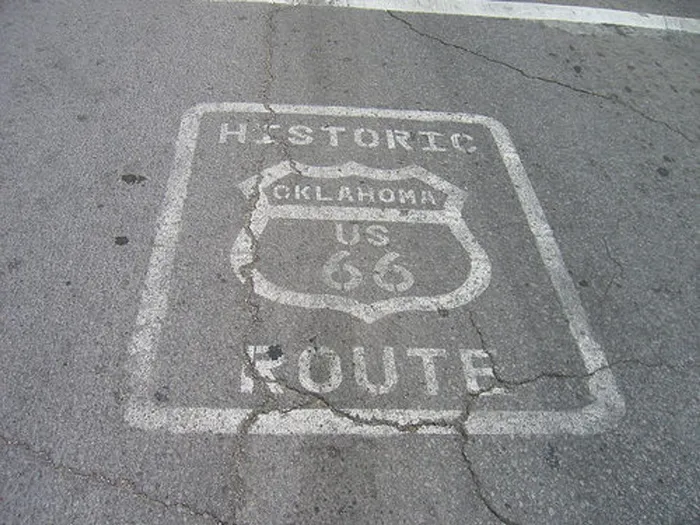Evoking past US glories

Anna Boevers remembers when the Motel Reno outside El Reno, Oklahoma, did a brisk trade on Route 66, America's first road linking the broad interior to the West Coast.
"It was here when I moved here in 1946, but it burnt down 20 years ago," she said as she watered her flower beds under a scorching Oklahoma sun. The motel is abandoned and dilapidated, its windows smashed. Vagrants inhabit it.
Such motels, with their trademark neon signs and family-run simplicity, are an endangered species, which evoke the glory days of a route that once symbolised America's embrace of the auto age and travel across its vast expanse.
They are among a list of irreplaceable landmarks on the brink of extinction. Such "mom and pop motels" - so-called because they were family affairs - are recognisable by their colourful signs that light up garishly at night.
"It was a lot busier here until they put the interstate through and it bypassed El Reno," Boevers said of her town, 40km west of Oklahoma City. It is a familiar refrain for communities that once thrived because of their location on "the long concrete path across the country", as John Steinbeck described Route 66 in The Grapes of Wrath. "Highway 66 is the main migrant road the mother road, the road of flight," Steinbeck wrote of the stream of dispossessed people who fled the drought-stricken Oklahoma Dust Bowl in the 1930s in search of the promised land in California.
The road also stirs memories of post-war prosperity when working-class families could afford to buy and drive big cars on long trips - hence the nostalgia for the route. But the interstate highway system, begun in the 1950s, offered a faster way of crisscrossing the country and the old roads that gave rise to motels saw a decline in customers.
The few such establishments near Oklahoma City on old Route 66 that remain are still family-run and offer what they always have - a no-frills room at a rock-bottom price.
And, as in Steinbeck's day, they still draw migrants escaping poverty back home - in this case, South Asian immigrants known for their work ethic and emphasis on family-run businesses. Several of the motels are run by Asian immigrant families for whom long hours and small profit margins are the price to be paid for their own version of the flight to the "promised land".
"I'm fixing things up, I plan on redoing the parking lot," said Ken Patel, the owner of the Western Motel, west of Oklahoma City. His lit-up sign outside is a classic of the genre, beckoning customers in glowing shades of red and green.
A few miles east lies the Carlyle Motel, its neon sign stands out starkly in a drab modern strip of used-car lots and fast-food joints.
Such development - and the retail chains they bring - are among the threats to these motels.
"You have an older couple who have had this property for 30 years and they want to retire and so they sell out to developers. These are the people we want to work with to preserve these old motels," said Michael Taylor, a programme manager for the National Park Service. - Reuters